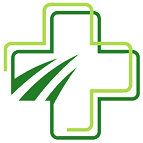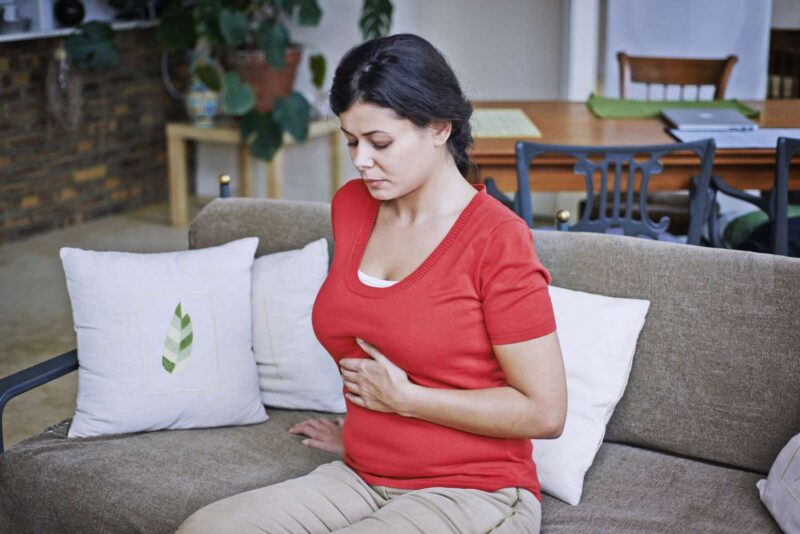Constipation is a condition in which a person has difficulty in passing stool. It happens when the stool moves very slowly through the digestive tract or is unable to pass through the rectum effectively. Constipation leads to disturbing and fitful bowel movements. The stools passed in constipation are hard and lumpy.
While going a day without passing stool is not necessarily an alarm, passing stool less than three days a week is considered a sign of constipation. Regular difficulty in passing stool and hard stool are considered signs of chronic constipation.
Causes
Constipation arises in the large intestine also called the colon. The colon is divided into 4 sections- ascending, descending, transverse and sigmoid. The stool consisting of ingested food, bile and other digestive fluids passes from the small intestine to the large intestine. Water is absorbed as the stool passes through the large intestine which makes the stool solid. The stool is then passed into the rectum. When the stool reaches the rectum, the internal anal sphincter relaxes. It is this time when a person feels the need to pass stool. Then the person relaxes the external anal sphincter and puborectalis (a sling-like muscle around the rectum) to finally pass stool. Constipation majorly occurs due to two major reasons-
- Constipation can occur if the stool passes very slowly through the large intestine; therefore, more and more water is absorbed into the large intestine. As a result, the stool gets hard and lumpy.
- Constipation also occurs when muscles work inappropriately. This happens when the internal anal sphincter relaxes but the person has difficulty relaxing the external anal sphincter or the puborectalis muscles. This cause is majorly seen during pregnancy and old age.
There are various other reasons for constipation. Constipation occurs due to obstruction in the large intestine due to intestinal adhesions (overgrowth of tissues inside the colon), hernias and colon cancer. Neurological conditions such as stroke, spinal cord injuries and Parkinson’s disease can cause nerves around the colon and rectum to not work properly resulting in constipation. Various hormonal issues can cause constipation such as diabetes, hyperthyroidism, and hypothyroidism.
Treatment
If constipation has not arisen due to any underlying condition, it can be treated at home. The most basic treatment of constipation is dietary measures. Changing what we eat and drink can have a huge impact on this issue. Depending upon age and sex, an adult should consume 25-35 g of fibre per day. A person should consult a dietician to know what the right amount of fibre for them is. Whole grains, legumes such as lentils, kidney beans, soya beans and chickpeas, fruits such as apples with skin on, oranges, pears and oranges, green leafy vegetables and nuts such as almonds and peanuts have high content of fibre in them. A person suffering from constipation should drink enough water and intake other fluids to avoid dehydration. Water and fluids help fibre work better which makes stool soft enough to pass without discomfort. Individuals suffering from constipation should avoid processed meats and fast foods at all costs. These food items have low fibre content and high in salts and fats, therefore, slows down digestion and increases the chance of constipation.
Regular exercise or physical activities can relieve an individual from constipation. Exercise ensures efficient blood flow throughout the body. Regular running or walking stimulates the muscles of the stomach and colon which results in better bowel movement.
Individuals suffering from chronic constipation are advised to get bowel training. It means having a bowel movement at the same time every day to become more regular. Bowel movement after a meal has proved to be very useful as eating stimulates the colon to move stool. In the beginning, it may take a long duration of time to pass the stool. The right posture to sit on the toilet seat is to sit in a squatting posture, with a footstool under your feet, and lean forward a bit with a straight back. This relaxes the puborectalis and eases the passage of stool.
If constipation does not go away with the self-care treatments, the individual must visit the doctor. The doctors may prescribe medicines according to the symptoms accordingly. Laxatives are prescribed by doctors. Laxatives help increase stool mobility, bulk and frequency. Stool softener is a type of laxative that, as the name suggests, softens stool by making it absorb and retain more water and fat so that it passes smoothly. In case, constipation is not resolved with medicine and lifestyle change, doctors may further investigate for underlying or secondary causes.
If the condition is very severe and requires treatment, one can consider looking for the best hospital in Kannur, Mumbai, or Bangalore as these cities provide the most cost effective care.


